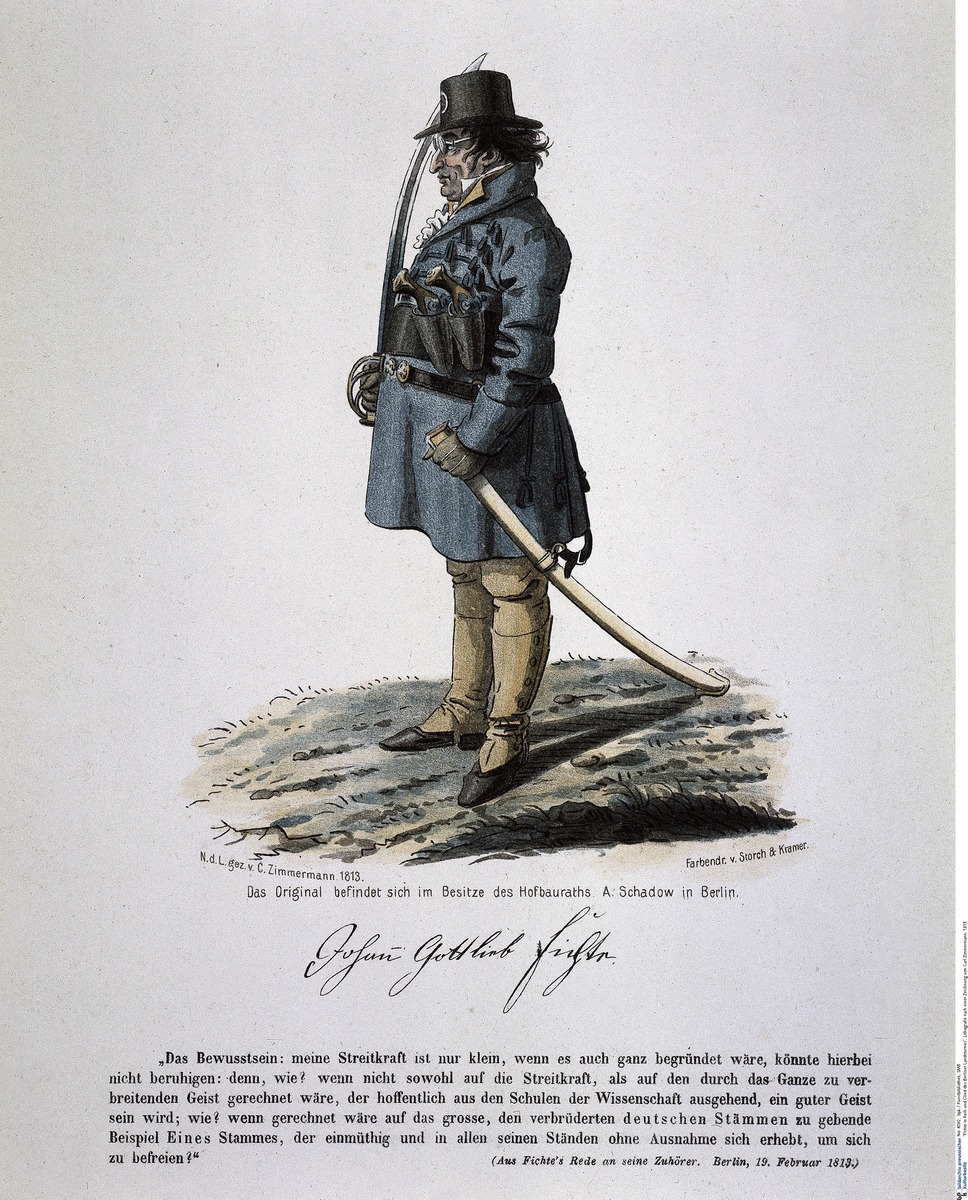Source

Source: bpk-Bildagentur, image number 00004592. For rights inquiries, please contact Art Resource at requests@artres.com (North America) or bpk-Bildagentur at kontakt@bpk-bildagentur.de (for all other countries).
One of the major figures of German idealism, the philosopher, professor, and political activist Johann Gottlieb Fichte (1762-1814) clarified and reconciled themes that he felt were inadequately addressed in the philosophy of Kant. In the 1790s, revolutionary events in neighboring France – which Fichte initially welcomed but later rejected – contributed to the evolution of his thinking. As a result, Fichte redirected his political interests toward German national renewal and opposition to the Napoleonic occupation of Prussia, both in his writings (e.g., “Addresses to the German Nation” of 1808) and in his actions (e.g., in 1813, he volunteered for the Landsturm, the Prussian territorial reserve). The image below shows Fichte, standing at attention, in the Berlin detachment of the Landsturm. The image caption is taken from a patriotic speech Fichte delivered in 1813, shortly before Prussia entered the War of Liberation. Lithograph by an unknown artist after a drawing by Carl Friedrich Zimmerman (1796-1820), 1813.

Source: bpk-Bildagentur, image number 00004592. For rights inquiries, please contact Art Resource at requests@artres.com (North America) or bpk-Bildagentur at kontakt@bpk-bildagentur.de (for all other countries).
bpk / Kunstbibliothek, SMB